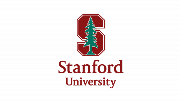- Career Center Home
- Search Jobs
- Heart Transplant Medical Directory
Description
The Division of Cardiovascular Medicine at Stanford University School of Medicine is seeking a board-certified non-invasive cardiologist with specialization in heart failure and heart transplantation to join the division as a Clinical Associate Professor or Clinical Professor in the Clinician Educator line to serve as the Medical Director of Heart Transplantation.
The Division is a dynamic and innovative center dedicated to excellence in research, medical education, and clinical
care. Our division is comprised of over 100 faculty, clinician educators and instructors who contribute to the Division’s
ongoing efforts in the prevention and treatment of cardiovascular disease. The Division of Cardiovascular Medicine is
one of the largest academic and clinical units within the Stanford Department of Medicine, providing clinical services
to more than 250,000 patients annually through Stanford University Medical Center and the Palo Alto Veterans Affairs
Health Care System. We deliver compassionate and cutting-edge preventive, diagnostic and therapeutic services to
patients with coronary artery disease, valvular heart disease, arrythmias, aortic disease and heart failure.
The Stanford Heart Transplant program is the longest-running program of its kind in the world, with almost 3,000 adult
heart transplants performed to-date, and is in the top 5-7 programs in the country by annual volumes. Our program
serves as a referral center for not only the Northern California region, but for surrounding states. We are recognized
for our short waiting times for highly prioritized patients, and transplantation of highly sensitized patients, those with
complex adult congenital heart disease, and candidates requiring multi-organ transplantation. Despite this case mix,
our clinical outcomes continue to at or above the national benchmark. In addition, the Stanford Heart Transplant
program is widely recognized for its leadership in clinical and translational research. The Medical Director will have
access to the Stanford heart transplant database and corresponding biobank, which contain granular clinical data and
biospecimens on hundreds of patients transplanted over the past 15 years.
The Medical Director will be responsible for overseeing a large multi-disciplinary team comprised of 13 transplant
cardiologists, 2 pre-transplant coordinators, 5 post-transplant coordinators, as well as transplant pharmacists, social
workers, and other allied health members.
Requirements
The major criterion for appointment, reappointment and promotion for Clinician Educators is excellence in the overall
mix of clinical care and clinical teaching appropriate to the programmatic needs the individual is expected to fulfill.
Successful applicants will be encouraged to interact with the wide range of clinical programs at Stanford, and to serve
as a liaison between the adult heart transplant program and other faculty groups, including adult congenital heart
disease, interventional cardiology, electrophysiology, pediatric heart transplantation, and the other solid organ
transplant programs at Stanford. Faculty rank will be determined by the qualifications and experience of the successful
candidate.
This position focuses on the expansion of clinical and educational programs within the Stanford adult heart transplant
program. The successful applicant's responsibilities will include a mix of inpatient care in the Stanford heart
transplant/mechanical circulatory support service, the cardiac intensive care unit, and the heart failure step-down
unit. Outpatient care will include heart transplant clinics, left ventricular assist device clinics, and outreach clinics
within the Stanford network in Northern California. Responsibilities will also include teaching fellows and supervising
advanced practice providers. Pursuit of individual scholarly interests is encouraged and supported.
Candidates must have an MD or equivalent, as well as fellowship training in Advanced Heart Failure Transplant
Cardiology. Necessary qualifications include board certification, eligibility for a California medical license, and suitable
clinical and teaching experience




